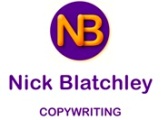A couple of years ago, I wrote a blog about writing Artificial Intelligence — ChatGPT and other similar versions. I still broadly agree with what I said then, but I’ve had more chance since to look at what AI can help with — and what still needs Word Wizardry.
AI — Strengths and Weaknesses
There are plenty of things ChatGPT1 can contribute to your business writing. Suppose you simply need to convey accurate information, without any requirement to engage (how-to manuals, for instance). AI can produce those quickly and easily — though it’s as well to fact-check before you put them out.
ChatGPT is also great for getting a quick digest on a topic that simply involves general information. It certainly beats what I used to do when faced with, for instance, advice about construction techniques or materials on offer, which was to Google the topic and read through the first half-dozen articles.
You could even use what it comes up with as your first draft — but only your first draft. While AI can vary its tone, it generally still reads like AI, which means artificial. If you use what it produces as a blog, social media post or email, your readers will be able to tell — and so will the Google bots.
The Difference Between AI and Word Wizardry
I recently had a close-up view of what writing AI can and can’t do. One of my regular clients wanted a lot of blogs fast, so she asked ChatGPT to write them for her. Being more savvy than some, however, she then sent me the results to go through and make them usable.
The brief to ChatGPT, essentially, had been to write about potentially boring topics in a way that was informative and fun. The AI’s interpretation of “fun” was to stick in random jokes, end nearly every sentence with an exclamation mark and pepper the blog with emojis.
Under all that, though, it was really just a recitation of the facts, written in a boringly repetitive style.
So what did I do? Well, firstly I deleted the emojis. I’m not saying you should never include them in a blog, but they should be used sparingly, if at all, and well targeted.
I took out most of the exclamation marks, except for one or two that were grammatically correct.2 And I toned down the jokes, either getting rid of them or making them more integrated into the blog as a whole.
With all that gone, what was left was mostly lists, with sentences all structured the same way — one of the best cures for insomnia on the market. The lists were fair enough, but I rewrote them to be more varied, more engaging. More interesting.
So was using AI a waste of time? Not at all. The editing process was a lot quicker than writing from scratch would have been, so the client got the blogs faster and at a lower cost, but still with a touch of Word Wizardry. But if, as many people would have, she’d put them out as they were, they’d have just been one big zzzzzzzz.
A Useful Tool
I’ve never been a technophobe, and any technological advance that can make life easier, without reducing quality, is to be welcomed. There are a lot of great tools to help with that — but tools need people. A hammer’s a great tool, but you don’t expect it to hammer nails in by itself. And if someone invents a hammer that can, it still needs to shown where to put the nails.
Some AI tools for business are simply win-win. Automating your admin has to be a good thing, for instance. Writing AI like ChatGPT, though, needs a more nuanced approach. Used as a step in the process, it can increase speed and efficiency — but it’s not the finished product.
What you release to your audience needs to engage, enthral and enchant, otherwise it’s just going to sink without trace in the ocean of information being put out every second. And a machine can’t achieve that. It needs human imagination, empathy and soul. It needs a Word Wizard.
1 ChatGPT is the writing AI I’ve had most experience with. There are several others available, and my understanding is that they’re all very broadly similar.
2 Exclamation marks are used for — guess what, exclamations. “Good heavens!” “Look out!” “Ker-powww!” But “Our prices are the lowest you’ll find” isn’t an exclamation, and using an exclamation mark for it is an abomination.

